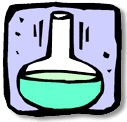 |
It is important for Canada to know how well students are
doing in science. By knowing this, the government can determine
if they need to upgrade or improve the course. Some aspects may
be out-of-date. In science there are many new discoveries and
advancements being made every day. Proper supplies, including
sufficient materials, lab equipment and audio/visual resources,
need to be made available to all students. It is useless to study
material that is obsolete. If the world today is dealing with
space exploration and computer technology, there is no point
teaching anything less. The Canadian government can find out
if students are being taught the necessary elements of science
to prepare them for future jobs in science not past jobs. |
The government needs to find out in which areas of science
students are doing well and why. Students may be doing extremely
well in chemistry, for example. The government then may discover
that chemistry is relatively easy compared to the other sections
of science. If a certain section is not challenging enough for
students, they may not do well in that area when it gets harder
in university or college. Also, students may not be doing well
in a certain area of science. If this is because the area is
difficult to understand the government could look into making
that area more comprehensible. Or maybe the science course is
not being taught by a qualified teacher.
By knowing how well students are doing in science, the government
can determine if they need to allow more time for science. Are
classes able to complete the assigned workload by year end? Also,
some students may seem to need more class time for the teacher
to explain the material. Students need to be taught all about
science, not just specific parts. Science is the way of the future
and is here to stay. Canadian students need to be prepared.
Science is not only fun, but also important for a career in
the international job market. Science is the "systematic
knowledge of the physical or material world gained through observation
and experimentation". The hands-on observing and the experimenting
part of science is really fun and truly enjoyable. You can get
involved and see results and/or progress as you complete your
experiment. Discovering new things in your field can be very
exciting. Some jobs in science can be fun. Being a consumer products
tester and smashing television screens and appliances can be
very enthralling!
Most jobs in the modem world need some form of science. Science
has become the backbone of our society. Science links our rapidly
shrinking planet together with phones, taxes, electronic mail
and communication satellites. Today's companies use state-of-the-art
equipment and need people who know how to accurately use the
equipment. The companies do not want to hire someone who knows
how to use a piece of equipment that is not up to date. An example
would be computers. Almost every job internationally today involves
the use of computers. One needs to be constantly knowledgeable
of computers since they upgrade greatly over short periods of
time. Science is a very competitive field and the employee has
to be outstanding to maintain a steady job, since there are many
other people the employer can hire.
Besides being fun, science is an essential tool in the growing
international science job market.
'Random House (1993). Random House Webster's Dictionary. New
York, NY: Ballantine Books |